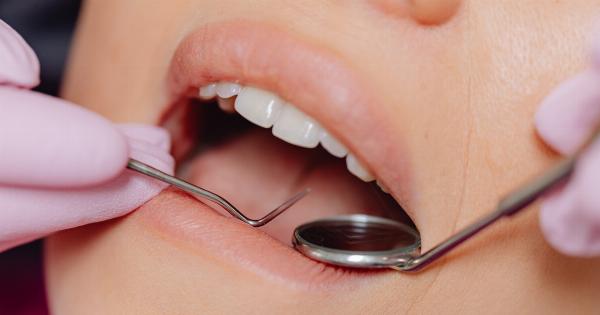Water is an essential resource that we need to survive. It is essential for our body’s functioning and can help prevent a host of health issues. However, not all water is created equal.
While we need to consume water on a daily basis, it can be a source of cavities, which is an issue that is often overlooked.
What are Cavities?
Cavities, also known as dental caries, are a common dental problem caused by the build-up of plaque and food particles on our teeth. Plaque is a sticky film that forms on teeth and is made up of bacteria, saliva, food particles, and other substances.
When plaque builds up on teeth, the bacteria in it produce acid that can demineralize the tooth enamel, leading to cavities.
How Can Water Cause Cavities?
Water is an essential resource that we need to consume on a daily basis. However, it can be a source of cavities if the water is not properly fluoridated.
Fluoride is a mineral that helps protect teeth from acid attack and can even help reverse the early stages of tooth decay. When water is fluoridated, it can provide a constant source of fluoride to our teeth, which can help prevent cavities.
What is Fluoridation?
Fluoridation is the process of adding fluoride to drinking water to help prevent tooth decay.
The process of fluoridation began in the early part of the 20th century when it was discovered that people living in areas with high levels of natural fluoride had fewer cavities. Today, over 70% of the US population has access to fluoridated water.
How Does Fluoride Help?
Fluoride helps to protect teeth from acid attack and can even help reverse the early stages of tooth decay. When we consume fluoride, it is absorbed into our teeth and helps to strengthen tooth enamel.
It can also help to reduce the amount of acid that bacteria produce in our mouths, which can lead to fewer cavities.
The Benefits of Fluoridated Water
Fluoridated water has numerous benefits. It can help to prevent tooth decay and cavities, especially in children. Studies have shown that communities with fluoridated water have fewer dental problems than those without.
It can also help to reduce the need for dental fillings and other dental treatments, which can save people time and money.
Is It Safe?: Water Fluoridation
Fluoridation has been proven to be a safe and effective way to prevent tooth decay. The US Centers for Disease Control and Prevention (CDC) has endorsed water fluoridation as one of the most effective ways to prevent tooth decay.
The CDC has also stated that the benefits of water fluoridation outweigh the risks.
Common Concerns About Fluoridation
There are some concerns about water fluoridation that people have. These concerns include the fear of fluorosis, which is a condition that occurs when too much fluoride is consumed and can lead to white spots on teeth.
There are also concerns about the safety of fluoride, as some studies have linked it to health problems such as cancer and neurological issues. However, the vast majority of studies have found no such links.
How to Ensure You Get Enough Fluoride
If you are concerned about getting enough fluoride, there are a few things you can do. First, check to see if your water is fluoridated. If it is not, you may want to consider using fluoride toothpaste or mouthwash.
You can also talk to your dentist about fluoride treatments. In some cases, fluoride supplements may be recommended.
The Bottom Line: Drinking Water and Cavities
Water is an essential resource that we need to survive. However, it can also be a source of cavities if it is not properly fluoridated. Fluoridation has been proven to be a safe and effective way to prevent tooth decay.
If you are concerned about getting enough fluoride, talk to your dentist or doctor.






























